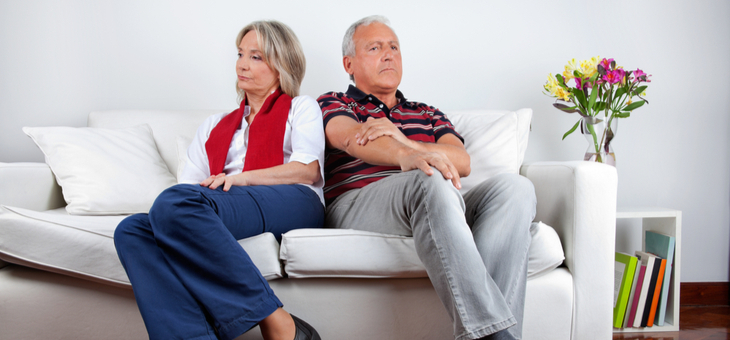Queensland psychologist and author Judy Rafferty investigates a strange phenomenon brought on by the need to self-isolate.
•••
Recently I spoke to a friend who mentioned to me that she was experiencing togetherness anxiety rather than separation anxiety. ‘Is togetherness anxiety a real thing?’ she asked, ‘or is it just a result of the pandemic staying-home laws? My husband used to be away from home a lot, but now he is home all the time,’ she said.
We have all learnt the art of social distancing. Perhaps as time goes on, and we continue day after day to share space, often a small space, with another or others, we need to talk about relationship distancing.
Relationships are more than just intimate partners. In addition to partner distancing, husband distancing, wife distancing, some of us might need parent distancing, children distancing, flat mate distancing,
How do we create a space that includes space for you, space for me and space for us? Usually the demands of daily life do this for us.
There is no one answer to relationship management and distancing, as there is no one type of relationship. But here are some ideas that might have truth and use within most relationships. Perhaps the first of these is to make no assumptions.
How easy it is to assume that we know what someone else is experiencing when we are experiencing the same situation. This sometimes happens in a situation of loss grief.
As adults, you and your siblings might be grieving the loss of a parent. You might expect that you will all be on the same journey, but you are likely to find that there will be considerable differences in how you grieve, what you are grieving, the timing of the grief and what you need in that period. I use this as an example but also note that, for each and every person, there is significant loss and, therefore, some grief attached to this pandemic.
Try not to assume that you know what the others in your house are going through or need. How much time do you want to yourself and how much time does your other/s want? Does one of you handle anxiety by being with a loved one who is seen as a support and does one of you need more space when experiencing stress or anxiety? How do you navigate this?
Communication seems like an overused word, but it is often an underused action. It is the answer – if you want to avoid making assumptions. Do talk about your needs and ask your other about his or hers. Brainstorm the solutions.
No-one is right and no-one is wrong. There are ways that will work better for you, ways that will work better for your mate and ways that will mean you can meet in the middle.
Address the little irritations quickly. They have a way of building into big ones.
Another friend told me that she has always been able to track her husband’s progress around the house. She knows what chair he has used, (as she pushes it back against the table), she knows what part of the paper he was reading and if he had a cup of tea or a coffee while reading it. He leaves little clues all over the house. Before the pandemic, that was okay. But now my friend and her husband are both home all the time and it is no longer okay. She complains that his life is seeping into every room in the house. It is time for them to talk and compromise.
It might be a good idea, if you have adequate space, to identify a your space and a my space. Your space can look and be any way you want – no questions asked. But the shared space is just that and is respected as such. Again, communication will resolve how you both want that shared space to look.
Negotiating a space to have and a space to share is important, but perhaps more important is negotiating time to have and time to share.
A routine will be a valuable tool in these days where external structures have largely been removed. We might be left floundering and procrastinating without the usual guardrails that guide us. Just like making decisions about space, the process involves communicating. Decide your own routines first then share them, and together see if you can work out a my time, a your time and a shared time. In this way, you are likely to find more enjoyment in the shared time.
The same process goes for managing roles. These may change a little or a lot while you are at home. Aim to have my list of jobs, your list and a shared list.
If you are home alone, then this increased isolation may or may not be an added challenge. Even if you are secretly loving the time to yourself without outside demands, do make the effort to keep in touch with others. Connection with others is an important means of maintaining good mental health.
Surprisingly, COVID 19 is bringing positives as well as negatives into our lives. But perhaps, to access those positives, we need to be thinking differently and actively managing our lives to ensure that we continue to enjoy each and every day!
Judy Rafferty is a psychologist with more than 20 years’ experience. Her book, Retirement Your Way – A practical guide to knowing what you want and how to get It, can be purchased via any online retailer, including Amazon, Booktopia and Book Depository, and can be ordered by any bookshop anywhere.
Do Judy’s suggestions sound a lot like the settling-in period during retirement?
If you enjoy our content, don’t keep it to yourself. Share our free eNews with your friends and encourage them to sign up.
Related articles:
When retirement is a rocky road
Know your consumer rights
Age-proof your resume

